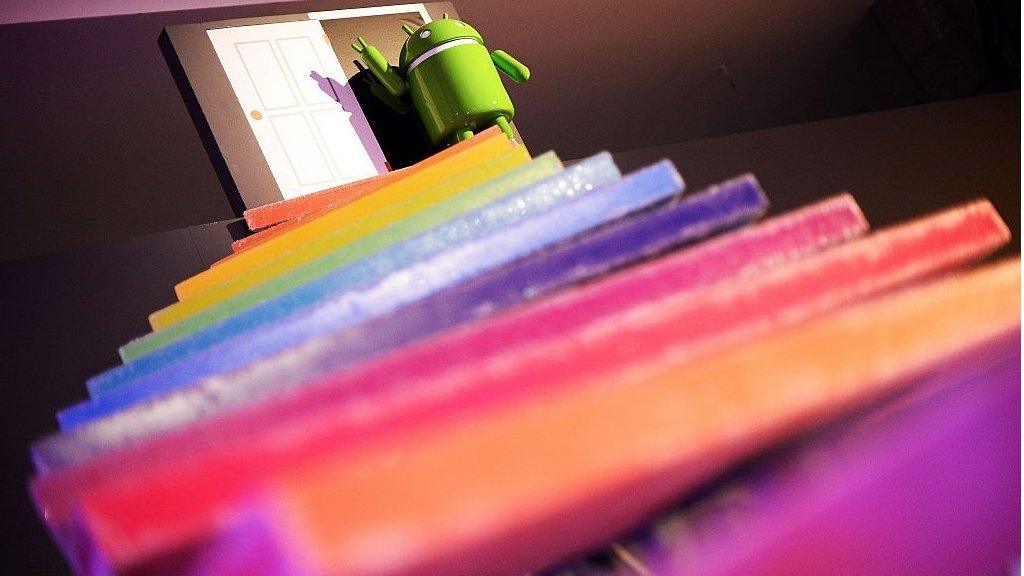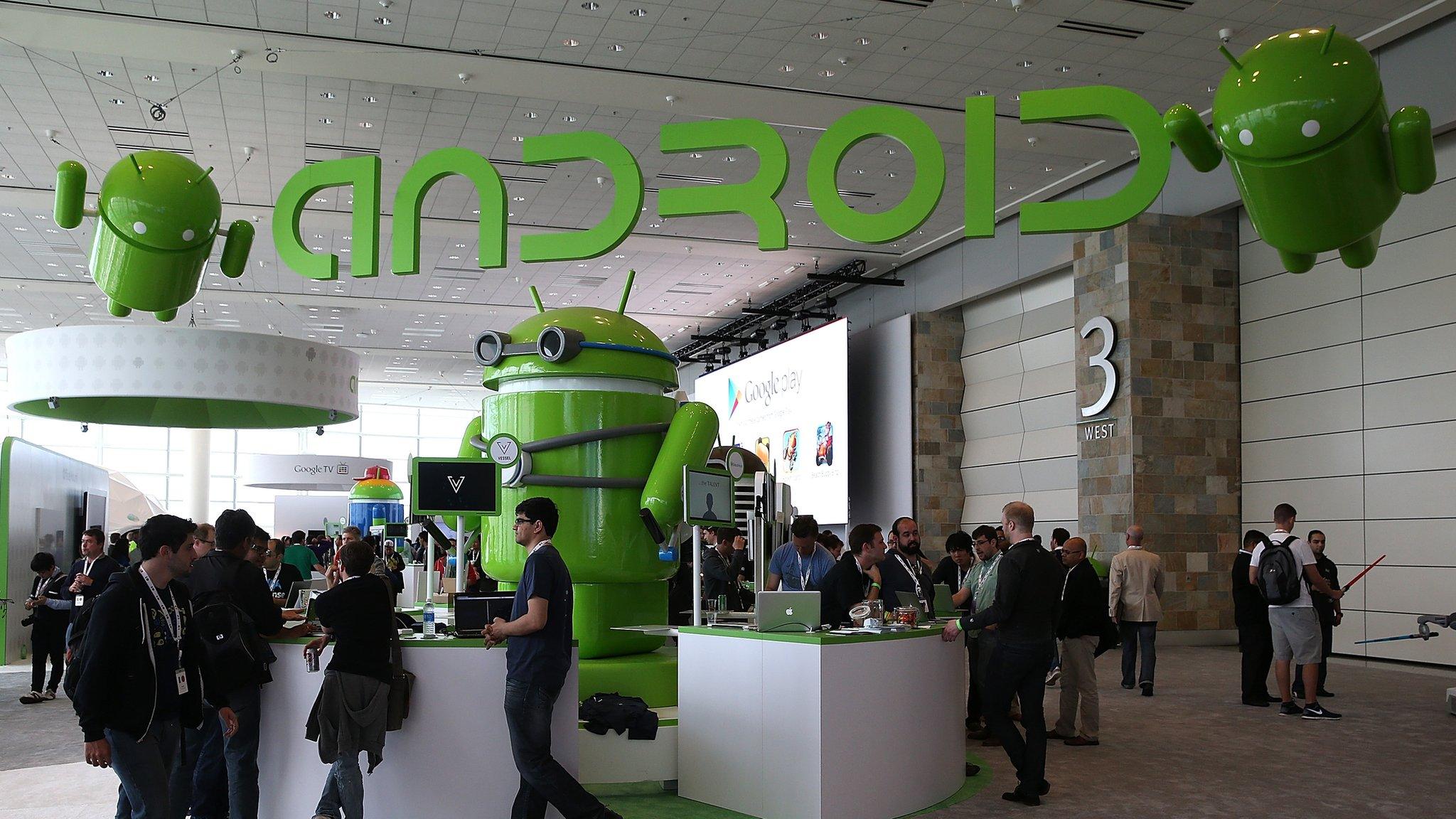Google takes Android search blow in Russia
- Published

Google has struck a deal in Russia but is still fighting its case in the EU
Google has promised to allow rivals' search engines and apps to be pre-installed on phones running its versions of Android in Russia.
The concession follows an out-of-court deal with the country's competition watchdog.
In addition, Google has promised to develop a tool to make it easy for users to change their device's default search engine.
Shares in Google's local Russian rival, Yandex, rose more than 7% on the news.
It brings to an end a long-running battle between the US firm and Russia's competition regulator, the Federal Antimonopoly Service (FAS).
Google had argued the regulator had no case because manufacturers could develop their own versions of Android or pre-install other apps of their choice.
But the FAS had argued that, despite its denials, Google was indeed "prohibiting" rival software to its own YouTube, Maps and Photos apps to be pre-installed alongside its own dominant version of Android.
The agency became involved after Yandex filed a complaint in February 2015.
Despite the nature of the settlement, Google will still have to pay a 438m rouble ($7.8; £6.2m) fine imposed after it failed to appeal the case last August.
"We are happy to have reached a commercial agreement with Yandex and a settlement with Russia's competition regulator, the Federal Antimonopoly Service (FAS), resolving the competition case over the distribution of Google apps on Android," a spokeswoman for Google told the BBC.
Yandex's chief executive Arkady Volozh declared the settlement "an important day for Russian consumers".
"I am thankful to the Federal Antimonopoly Service for applying the law in a manner that effectively and efficiently restores competition to the market for the benefit of Russian users, as competition always breeds innovation," he added.
The EU continues to pursue similar claims against Google, saying the firm is "requiring and incentivising" Android hardware manufacturers to exclusively use its services.
- Published17 August 2016

- Published15 March 2016

- Published19 November 2015

- Published18 February 2015
